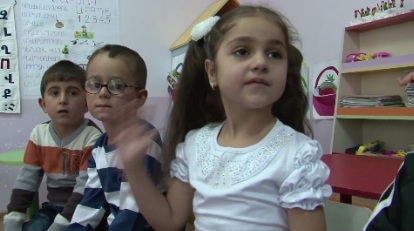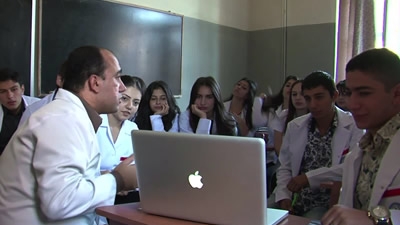- Higher Quality Will Put Armenia’s Universities on Par with Europe
- Armenian Communities Revive Vital Structures
- In Armenia, Early Education Assures Brighter Future
The Country Partnership Strategy (CPS) developed by the World Bank Group in close consultation with the Armenian government and civil society actors in the country, places private sector-led job creation at the center of its efforts.
Armenia’s development strategy mainstreams employment expansion as the key engine for improving living standards and reducing poverty in the country. The government emphasizes the need to enhance human capital, improve social protection, and modernize the public administration and governance.
It has also committed to triple per capita income (set at $10,000) and reduce poverty to 13 percent by 2025, compared to 35 percent currently. This will lift 800,000 people out of poverty in Armenia. With its twin goals of ending extreme poverty by 2030 and boosting shared prosperity, the Bank will support Armenia’s job creation agenda through accelerated economic growth.
The CPS, prepared jointly with the International Finance Corporation (IFC), outlines efforts to draw out synergies and catalyze higher volumes of private resources to support Armenia’s development.
The strategy is organized around three pillars:
- Supporting competitiveness and job creation: The CPS support will aim at improving the business environment and investment climate for small and medium enterprise creation, growth and innovation, raising agriculture and rural economy in a sustainable way, and improving access to and quality of economic infrastructures such as transport, energy, water and sanitation. Other planned steps include promoting the tourism industry, capitalizing on regional development and cultural heritage as potential drivers of economic diversification and growth, and removing the barriers to credit access.
- Improving efficiency and equity in social services delivery: The CPS aims to tap into human potential through targeted interventions in health, by further developing primary healthcare, improving financing and strengthening institutional capacities along with modernization of the hospital network. In education, this will be done by supporting the development and implementation of new content, strengthening teachers’ training and evaluation, and financing mechanism and school autonomy. Another effort will be to better target beneficiary families for social protection. Some of the key results the Bank hopes for include rehabilitation and creation of social infrastructure aimed at improving social welfare, improving health outcomes in terms of mortality and morbidity, and extending health benefits to families that are in the family benefit program.
- Improving Governance and Anti-corruption Measures in Public Services. The focus will be on revamping the government’s anti-corruption framework, improving efficiency of public administration, and deepening public finance management reform by improving access to information on government activities and strengthening core anti-corruption bodies. Some of the actions will include securing access to electronic services across agencies, and improving financial control and audit mechanisms in the public institutions.





